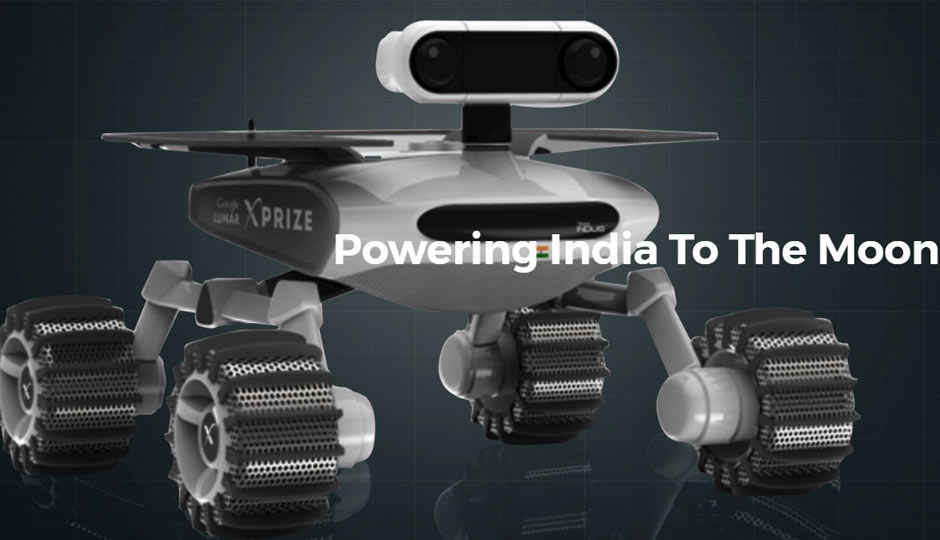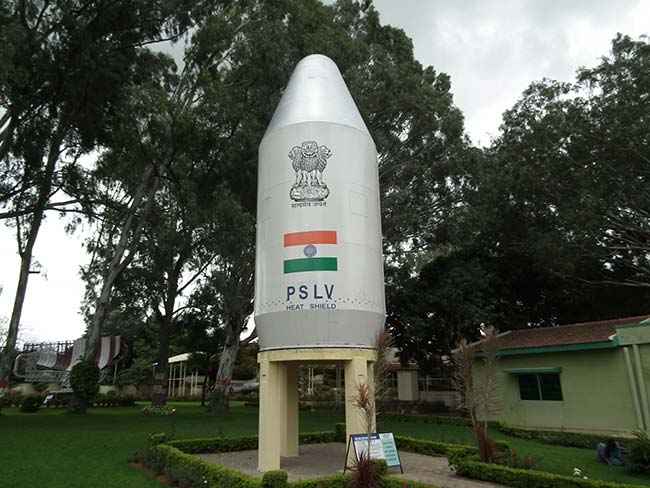Privatisation key to give ISRO freedom to experiment, says TeamIndus Engineer

A discussion on space privatisation and reviving aerospace in Indian academia with Adithya Kothandhapani, Mission Systems Engineer, TeamIndus
When it comes to space privatisation in India, TeamIndus started off as a moonshot – quite literally. Quite possibly India’s first and only private aerospace startup, TeamIndus entered the Google Lunar XPRIZE competition, announced in 2007, in a bid to win the coveted position of being the first privately funded mission to reach the moon. In 2017, it is one of the five teams from around the world still in the race to the lunar surface. A team of nearly 85 engineers and 12 retired ISRO scientists based out of Bengaluru, TeamIndus aims to revive the interest in the Indian space mission and privatisation of space exploration, something that the entire world is gradually coming to terms with.
The Private dream
“Launch capability and spacecraft development are the 2 major chunks of Transportation. As of now, both are being done by ISRO, and it is a credit to their determination and hard work that India boasts of the best-in-class manufacturing technology for a competitive global cost”, says Adithya Kothandhapani, TeamIndus Jedi Trooper – Mission Systems Engineer. “ISRO has asked the industry (private players/consortiums) to step forward and slowly take up manufacturing, integration and probably operation of PSLV, the workhorse launch vehicle as it has reached a level of maturity and reliability. Spacecraft development has so far been done at ISRO centres. But now the movement towards the private sector, like the Lunar Mission by TeamIndus, and the response to public tenders floated by ISRO for the development of small satellites by a consortium of companies indicates that ISRO is making the push for privatisation.”
The PSLV heat shield
The recent success in the PSLV mission, along with global achievements in areas like reusable spacecraft, indicate a future where space transportation is as private as airways, maybe even roadways, are today. With ISRO increasingly becoming a strong voice in the world of space exploration, India might be looking at a big role in such a future. “In the near future, transportation is clearly the part of space exploration that is going to be supercharged by privatisation. And this is partly due to the efforts of ISRO, and partly due to the global NewSpace movement where sustainable commercial return is the basis for deploying space and space-allied platforms, technologies and services,” says Adithya, “Privatisation would ultimately help free up ISRO and allow it to focus on more cutting-edge missions, and meanwhile nurture Indian private firms in ultimately reducing the cost to space. Greater the size of this industry in India, greater the need for highly qualified/skilled workforce, and this would snowball into an increase in India’s share of the global space market.”
The Changes
So, what changed? In general, it can be said that India was never behind any other country when it came to the quality of scientists or engineers. In fact, a major portion of these professions in international space agencies is occupied by Indian professionals. So, where did things fall into place? “Significant problems can mostly be attributed to the gap in technological capabilities and demanding quality levels between ISRO and the private sector”, Adithya notes. He adds, “Though ISRO has repeatedly attempted to nurture private enterprises to work and further the production of spacecraft systems and allied technologies, the private sector has been slow to meet the expectations of ISRO. It is only of late that this gap is closing, and it is the perfect timing currently, with TeamIndus also entering the fray which itself has stringent quality requirements that need to be met in order to achieve the objectives of an ambitious mission.”
Another factor, according to Adithya, which is helping the Indian Space dream is the availability of international payloads to take part in ISRO’s missions, the success of which is being reflected onto Indian research institutes, spurring their interests into taking the dream forward.
Where are the Astronauts?
Many of us used to say that we wanted to be astronauts when we grow up. But somewhere along the way, that dream disappeared for most of us, be what may the reason, and we went into other career paths. Except, some stuck to their passion for space and saw it through. “For many of us at TeamIndus, working on a space mission, that too one so ambitious is literally ‘living our dreams’”, explains Adithya, “and the pure joy we experience while solving challenging problems with a lunar mission as the context is incomparable to doing any other activity (that’s, of course, personal bias!).”
Shawna Pandya, the third Indian origin female space scientist who will be part of a mission that commences next year
(Image source: Twitter)
“If we can solve the mystery of why the large number of engineering and science graduates passing out of Indian colleges doesn’t convert to an increase in the indigenization and export of high-technology in the field of Aeronautics and Space, we have the answer”, says Adithya about the general lack of interest among Indian students in areas like Aerospace. “It can be attributed to the lack of research-based curriculum, the gap between the syllabus in class and the demands of industry, examinations not being targeted at assessing the candidate’s ability to apply knowledge to solve real-world problems but rather focused on rote recall.”
But all is not lost yet. At least, not if TeamIndus has something to do about it. “The rise in the number of private aerospace companies, and the associated rise in placement opportunities in aerospace and allied sectors is certainly changing the landscape at one end,” says Adithya, “But if there is a corresponding change in the education system and academia, India would be unstoppable in accomplishing things in space. Any space mission is, after all, more about the people who make it happen than the actual spacecraft! This is a good time to nurture those dreams of becoming an astronaut.”







